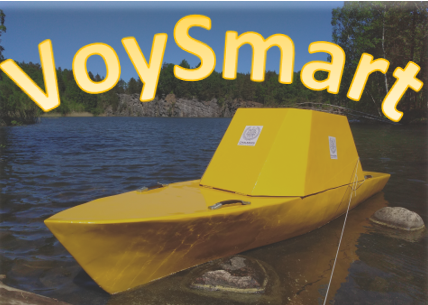AutoBarge#
This project is funded by EUH2020-MSCA-ITN–Autobarge GA: 955768

Project background#
Funded by the Marie-Skłodowska-Curie Innovative Training Network “AUTOBarge – European training and research network on Autonomous Barges for Smart Inland Shipping” within the Horizon 2020 Programme of the European Commission. According to the European Commission, passenger transport is projected to increase 42% by 2050, and freight transport up to 60%. Needless to say, this puts an enormous burden on transport networks and our environment. Compared to other modes of transport – which often face congestion and capacity problems – inland waterway transport is characterised by reliability, energy efficiency and a capacity for increased use. More than 37,000 km of waterways connect hundreds of cities and industrial regions in Europe. In the EU, 13 countries share an interconnected waterway network, highlighting the potential for increasing the modal share of inland waterway transport. This will not happen unless we can make inland waterways economically competitive. However, with crew costs accounting for 60% of the total cost, autonomous inland vessels represent an exciting disruptive technology. AUTOBarge is about seizing an opportunity. Europe’s waterways are a vital resource that we have underused for most of the last century. Now, with the possibility for mass autonomous shipping, these canals and rivers offer a network that we can exploit without damaging the environment to the extent of new roads and aircraft runways. But to be able to do this we need new people with new skills. These innovators must be experts in remote control, monitoring, smart logistics, regulatory aspects, and many more areas associated with the complexity of inland shipping. The 15 early-stage researchers recruited to AUTObarge will begin this transport revolution. The AUTOBarge Beneficiaries are 7 universities, KU Leuven (BE), Universiteit Antwerpen (BE), TU Delft (NL), NTNU (NO), Nord Universitet (NO), Chalmers Tekniska Högskola (SE), Universität Hamburg (DE), 2 high-technology companies, Periskal (BE) and Kongsberg Maritime (NO), and 1 non-university research institute, Institut Du Droit International Des Transports (FR). The consortium is completed by 10 Partner Organisations that include 4 companies, 3 non-university research institutes, 2 network/stakeholder organisations, and 1 governmental organisation. AUTOBarge unites some of the best and most relevant of European industry and the key academic players, guaranteeing not only an exciting interdisciplinary, intersectoral research-andtraining programme, but also a head-start for bringing about the successful application of autonomy in inland-waterway transport.
Project objective#
Identification of vessel dynamics
Vessel to vessel communication
Awareness and perception
Control of vessel
Optimizing energy consumption
Absence of framework
International border crossings
Business models
Our tasks at Chalmers#
ESR7: Real-time multi-objective voyage optimization algorithms based on on-line machine learning for efficient autonomous navigation.
Optimization algorithms (deterministic, stochastic, machine learning,…)
Ship maneuverability models (physical, mathematical, on-line learning,…)
Traffic modelling and perception (machine learning, COLREG risk identification,…)
Ship path following (control and optimization)
Our research platform#


